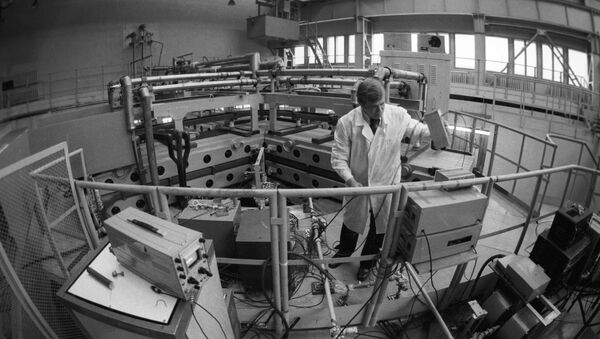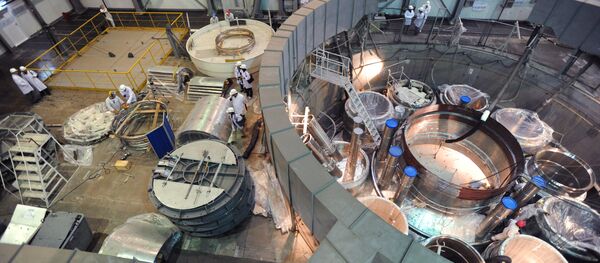Thermonuclear installations attempt to use fusion reactions like those occurring in the Sun to produce electric power. If successful, it will provide a practically inexhaustible source of energy for the world. The biggest installation under construction today is ITER in France.
Tritium accumulation poses several threats and, in large amounts, leads to the "total degradation" of the walls' mechanical properties, according to Yury Gasparyan of the MEPhI Department of Plasma Physics. The uncontrolled tritium leaks from reactor walls leads to so-called plasma disruption and a tremendous outburst of energy directed against the walls, the report quotes him as saying.
One must know the hydrogen interaction energy with metal defects of thermonuclear systems' walls to solve these problems. The MEPhI Department of Plasma Physics has developed a new method to measure this.
According to Gasparyan, the new method yields more accurate data than anything else to date. Moreover, the data are not sensitive or are minimally sensitive to factors that had a considerable impact on measurements earlier.





